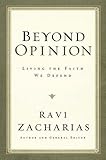 Worship Matters: Leading Others to Encounter the Greatness of God by Bob Kauflin
Worship Matters: Leading Others to Encounter the Greatness of God by Bob KauflinMy review
rating: 4 of 5 stars
If you follow Bob Kauflin's blog, you know that his routine of answering people's questions about church music ministry is done very deliberately. He doesn't rant. He encourages right relationships first. He emphasizes biblical principles, and in the end he'll get around to answering the question, an answer that usually seems more obvious once he cuts to the heart of the issue, and what is really important. It is no surprise then to see his book written in the same style, and with the same patience we've come to expect from him. Worship Matters is more than just another book about worship, and it is more than a little commentary and list of suggestions on how to "do music" better.
SummaryBob Kauflin's book Worship Matters is a very useful guide for church music volunteers to music directors to worship leaders, to senior pastors. The book's primary focus, however is on worship leaders. He takes his time patiently addressing each topic, even sometimes repeating himself, but not to anyone's detriment. The book serves as a healthy reminder to those who would lead worship-musical or non musical, as to what is important and what should be remembered, and what can safely be discarded.
The book is divided into four main sections. The first deals with the worship leaders in five short chapters. What is important, what should be important? what are the things the leader should love? what are things the leaders believe? what are the things leaders practice? what are the things leaders model?
It is a great centering area of the book for worship leaders to ruminate on even before proceeding further along in the book.
Part two of the book deals specifically with what a worship leader does. Here he presents his definition:
A faithful worship leader
magnifies the greatness of God in Jesus Christ
through the power of the Holy Spirit
by skillfully combining God's Word with music,
thereby motivating the gathered church
to proclaim the gospel,
to cherish God's presence,
and to live for God's glory.
He spends the next several chapters exegeting his own statement, exploring and giving insight phrase by phrase. Here Kauflin gives a nice mix of scriptural, philosophical, and practical teachings and suggestions for understanding the worship leader's role.
The third part to his book explores what he terms "Healthy Tensions." Using the following principles, 1. Do what God clearly commands. 2. Don't do what God clearly forbids. 3. Use scriptural wisdom for everything else.
Even though he spends time expanding on these tensions, I find that the most insight is gained by pondering the existence and identification of the tensions alone. Not meant to be a comprehensive list, Kauflin lists the following:
- Transcendent and Immanent
- Head and Heart
- Internal and External
- Vertical and Horizontal
- Planned and Spontaneous
- Rooted and Relevant
- Skilled and Authentic
- For the Church and Unbelievers
- Event and Everyday
The fourth part deals with Right Relationships: Church, Team, and Pastor. It is always good to be reminded of healthy relationships, and their importance, particularly in church leadership. This section of the book was probably the most meaningful to me, as with great humility Kauflin framed healthy church leadership relationships in light of submission to the pastor, seeking to give encouragement, seeking biblical steps in resolving conflict, nipping personal pride, and seeking evaluation and reproof. Proverbs 12:1 "Whoever loves discipline loves knowledge, but he who hates reproof is stupid."
The end notes to this book contain a robust annotated bibliography, short on music sources and heavy on theology. This is no surprise as his writing is rich with scriptural references and one of his fundamental perspectives is that the worship leader, just as all followers of Christ, should first seek to be a theologian.
Some favorite quotes:
A worship leader who barely knows the Bible can't be a faithful worship leader.
We're good theologians if what we say and think about God lines up with what Scripture says and affirms. We're bad theologians if our view of God is vague, unbiblical, distorted, or based on our own opinions.
Misconception: We know God better through music than through Words.
When we're dodgy about our theology, we're really saying we want our own Jesus.
[God] never gets tired of hearing believers' almost-in-tune, somewhat together, faith-filled offerings of worship.
If our doctrine is accurate but our hearts are cold toward God himself, our corporate worship will be true but lifeless. Or if we express fervent love for God but present vague, inaccurate, or incomplete ideas of him to those we're leading, our worship will be emotional but misleading-and possibly idolatrous. Neither option brings God glory.
If you have a role in leading worship in church or parachurch, this book will be well worth your time. Whether you're the primary worship leader, a "chief musician," a volunteer, or a senior pastor, I highly recommend this book and it's valuable insights to you.
View all my reviews.









